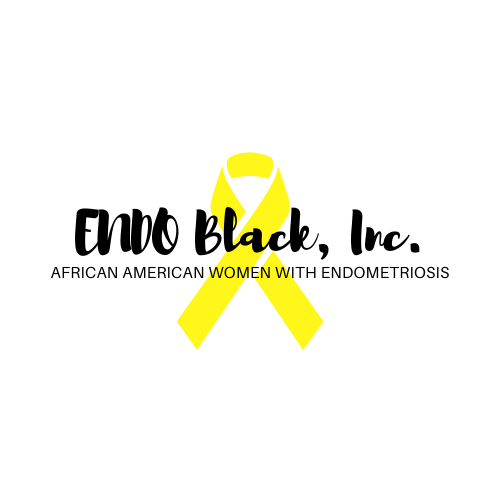I Couldn't Have Endometriosis Because I was Black...
Fatima Lathan
I was 25 when I first heard the word endometriosis.
I will never forget. I was in the bathroom at work when my supervisor came up to me and asked me what was wrong. I knew I looked like I was drained, so the question wasn’t offensive.
Instead of using my typical lies of “I was up late” or “I’m just going through a lot right now.” I told her the truth. I told her that my period was draining me and that I felt nauseous, and my legs had the sensation of cold water running down them.
She looked at me with concern and asked me if I had ever heard of endometriosis.
Endo who? Endo what?
Keep in mind, I live in a small town, and at this time, I was still a virgin. So when I first heard the word, I thought she was implying that I had a sexually transmitted disease and immediately began to shut down. Mentally, I stored her away as someone I would NEVER discuss my complicated period with. I guess she saw my distaste and continued talking.
“Endometriosis is a disease that impacts a lot of women's lives. It causes a lot of pain; you should make an appointment with an OBGYN and get checked out.”
We washed our hands and went back to our desk. As I set in mind, a million questions ran through my mind.
“Am I about to lose my virginity to a doctor?”
“How did I get this disease?”
“God, am I doing something wrong?”
“What does any of this mean?”
The brain chatter didn’t end there. It followed me home, and for days, there was a mental debate on if I should or should not make an appointment with a specialist.
After chatting with relatives, I decided to go forward with the appointment to see what was going on with me. A family member had suggested a local doctor who was Black, and I immediately set up an appointment with him. After all, who could better understand the black woman than the black man?
I remember how cold the room felt. The way that the fluorescent light blinded me as it reflected off of the beige walls and white floors.
There was nothing warm about the room, and as a 25-year-old black woman looking for answers about her cycles, the environment made me feel even more out of place.
In came the doctor.
I specifically picked him because he looked like me.
I just knew that he would listen to my concerns and do everything in his power to help me.
Boy, was I wrong.
As I sat there in my gown, skin against the cold paper, without even looking at me, he had me all figured out.
“I’ve seen this a thousand times; you have bad periods. We will get you on birth control.”
The way that he said it made me feel like the pain that I was feeling was exaggerated and that my concerns were invalid.
“Ummmm, sir?” I said meekly, “ I’ve been reading a lot online about endometriosis; how do I get tested for that?”
The doctor looked at me with a smirk and stated:
“That disease is primarily in white women; Black women get fibroids. I’m gonna get you set up on birth control and see you in a year, okay.”
I will never forget the confidence in his voice. It was so condescending. Not knowing the things I know now, I took birth control and went on about my way.
The whole time I had fibroids and endometriosis. My tubes were blocked, and I was losing vital years of fertility without even knowing it.
For years I was angry at that man. I didn't understand how he could be so irresponsible. How could he not go above and beyond to help me?
At that moment, I learned a valuable lesson: YOU are your biggest advocate. You have to do everything in your power to make sure you are getting the best care possible.
Get a second opinion. Force them to note that they deny you imperative testing and scans. Push them when they try to box you in as a general case. Do not suffer in silence. Do not allow anyone to tell you what's going in your body. FIGHT! With everything in you to protect your fertility. I beg of you, and please do not end up like me.

